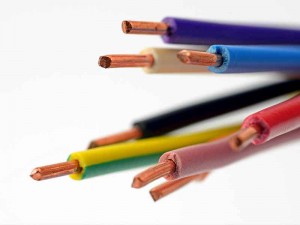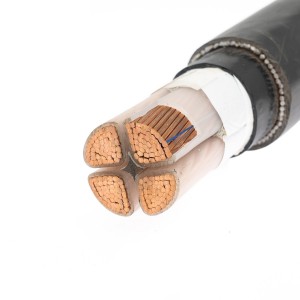XLPE cables and PVC cables are two commonly used cable types that are widely used in various industries and applications. Although both types of cables are used to transmit electrical power, they differ in terms of insulation materials, performance characteristics and applications.

Insulation Materials:
XLPE Cable: XLPE (cross-linked polyethylene) cables have insulation made of cross-linked polyethylene. It undergoes a process called crosslinking, which improves its thermal and chemical properties, making it more resistant to high temperatures and spoiling substances.
PVC Cable: PVC (polyvinyl chloride) cables have insulation made of polyvinyl chloride. It is a flexible and cost-effective cable insulation option, but it has lower thermal and chemical resistance than XLPE.
Temperature resistance:
XLPE cables: XLPE cables are able to withstand higher operating temperatures compared to PVC cables. They have better thermal stability and can operate in temperatures ranging from -40°C to 90°C, making them suitable for use in harsh environments and industrial applications.
PVC cables: PVC cables have lower temperature resistance compared to XLPE cables. They typically operate in temperatures ranging from -15°C to 70°C, making them suitable for general electrical wiring and indoor applications.
Electrical performance:
XLPE Cable: XLPE cable has excellent electrical properties, including high insulation resistance and low dielectric loss. They provide better dielectric strength, allowing higher voltage ratings and efficient power transmission over long distances.
PVC cables: PVC cables have satisfactory electrical properties, but are not as good as XLPE cables in terms of insulation resistance and dielectric strength. They are suitable for low to medium voltage applications.
Chemical and Moisture Resistance:
XLPE cables: XLPE cables have better resistance to chemicals, oil and moisture than PVC cables. They are more durable and maintain their performance even in the presence of water or corrosive substances.
PVC Cables: PVC cables have limited chemical resistance and tend to degrade when exposed to moisture or certain chemicals. They are better suited for dry environments and indoor installations.
Application:
XLPE Cables: XLPE cables are commonly used in transmission and distribution networks, underground cable installations, industrial applications, renewable energy systems and infrastructure projects. They are favored for their high voltage capacity, durability and performance under demanding conditions.
PVC Cables: PVC cables are widely used for general electrical wiring in residential, commercial and light industrial applications. They are commonly used for wiring in buildings, appliances, lighting and low voltage systems.
In conclusion, the main differences between XLPE cables and PVC cables are insulation material, temperature resistance, electrical performance, chemical resistance and application suitability. XLPE cables offer increased temperature resistance, better electrical performance, and superior chemical and moisture resistance, making them suitable for more demanding applications. PVC cables, on the other hand, are cost-effective, flexible and suitable for general electrical wiring in less demanding environments.
Email: sales@zhongweicables.com
Mobile/Whatspp/Wechat: +86 17758694970
Post time: 2023-08-31






